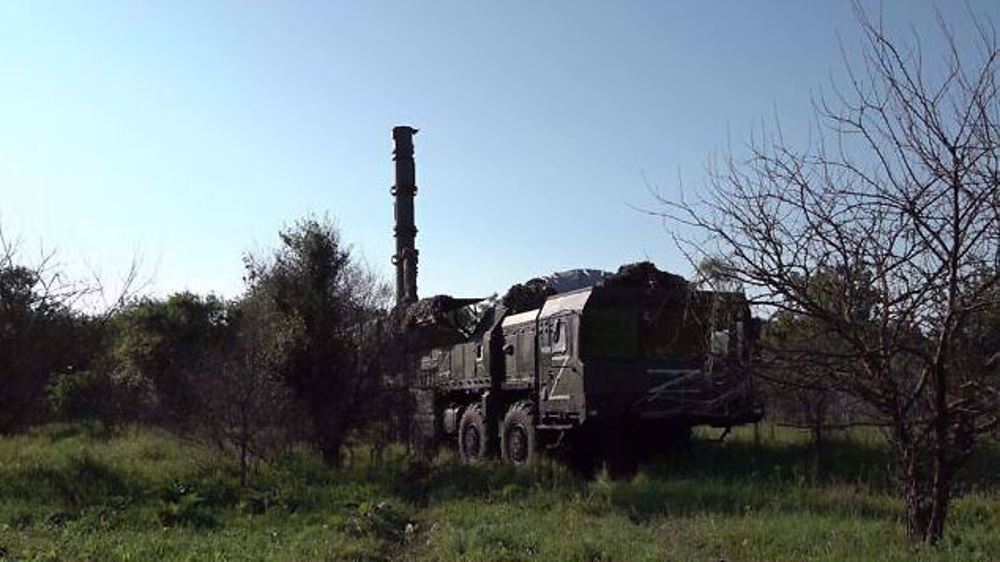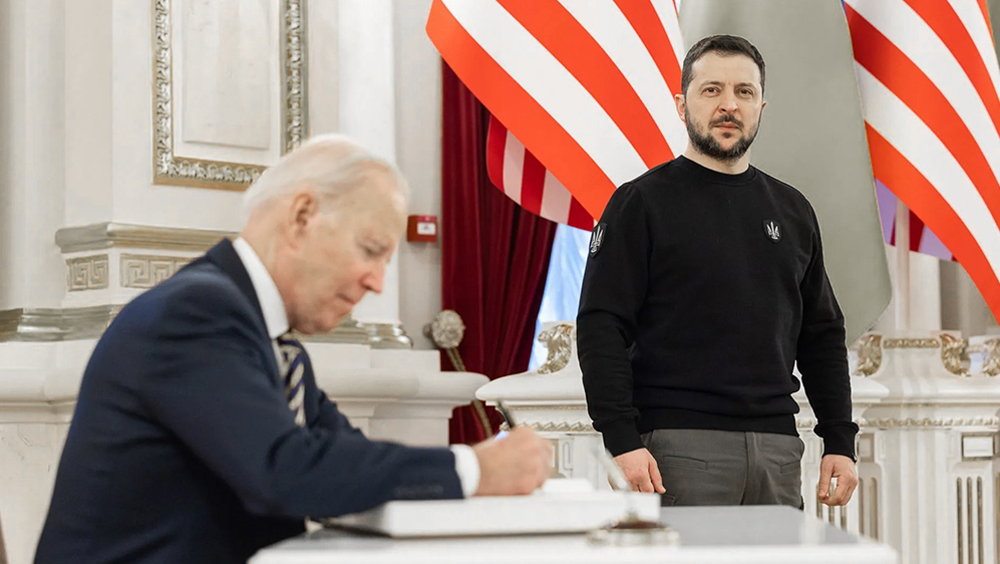EU rebuffs Ukraine call to send ships to waters off Russia
European leaders have rebuffed calls from Ukraine for greater support against Russia after Kiev urged NATO to send ships into waters disputed with Moscow.
German Chancellor Angela Merkel instead asked Ukraine to be "sensible" following the request from President Petro Poroshenko, just hours after the EU failed to agree on new sanctions against Moscow.
On Thursday, Poroshenko asked NATO members, including Germany, to send naval vessels to the Sea of Azov to back his country after Russian forces seized three Ukrainian ships off the coast of Crimea.
"Germany is one of our closest allies, and we hope that states within NATO are now ready to relocate naval ships to the Sea of Azov in order to assist Ukraine and provide security," he told Germany's Bild newspaper.
Merkel apparently dismissed the request for military support.
"We ask the Ukrainian side too to be sensible because we know that we can only solve things through being reasonable and through dialogue because there is no military solution to these disputes," she said.
Ukraine bans Russian men, mulls 'mirror actions'
Ukraine on Friday limited entry for Russian men aged 16 to 60 after imposing martial law in border regions this week.
"As of today, entry is restricted for foreigners -- in the first instance for male citizens of the Russian Federation age 16 to 60," the head of the border service Petro Tsyhykal said at a meeting with Poroshenko broadcast live.
Russian lawmaker Frants Klintsevich said his country does not plan to ban Ukrainian men from entering the country in a tit-for-tat response.
Ukraine is also considering whether to respond in kind with "mirror actions" to Russia, senior official at the state security service (SBU) Ihor Huskov told reporters.
"Decisions are being considered with regard to the conduct of appropriate mirror actions as a response to the actions of the aggressor," Huskov said.
Russian authorities arrested 24 Ukrainian sailors and seized their three gunboats on Sunday, saying they had deliberately trespassed into its territorial waters in the Sea of Azov.
A Russian court in Crimea ordered the detained sailors and the vessels to be remained in pre-trial detention for two months until January 25, 2019.
Some of the sailors have now been sent to a detention center in Moscow, one of their lawyers said.
Dzhemil Temishev, one of the attorneys of the detained sailors, wrote in a facebook post on Thursday that some of the sailors “are being taken to Moscow's Lefortovo prison.”
Another attorney, Emine Avamilyeva, said they were "taken by plane" to Moscow.
The sailors are charged with illegal border crossing by a group of individuals acting in collusion, or by an organized group, or with the use of or the threat to use violence, according to lawyer Aider Azamatov, who said they face up to six years in prison if convicted.
Tensions, already high between Kiev and Moscow since some four year ago, entered a new phase following Sunday’s incident. The two countries now risk being drawn into a wider conflict amid Western calls for more sanctions against Moscow.
Russian President Vladimir Putin has accused Poroshenko of orchestrating the naval “provocation” in the Black Sea to bolster his popularity ratings ahead of next year’s presidential election.
Moscow has also said the United States is encouraging provocation between Russia and Ukraine.
Turkey to play mediator role
On Thursday, Turkish President Recep Teyyip Erdogan said Ankara could play a mediation role to ease tensions and that he had “discussed this with both sides.”
Erdogan held telephone conversation with both presidents on Wednesday and planned to bring up the issue in a meeting with US President Donald Trump in Buenos Aires where they are to attend the G20 summit.

UN chief Antonio Guterres said on Thursday he was "greatly concerned" about the escalation, calling on "both parties to exercise maximum restraint and to take steps without delay to contain this incident and reduce tensions."
The latest hostilities also affected a planned meeting between Trump and Putin on the sidelines of the G20 summit, with the US president calling it off on Thursday.
The Kremlin said Friday Trump's decision was regrettable. "We regret the US administration's decision to cancel the meeting," Putin's spokesman Dmitry Peskov told Russian news agencies.
"This means that discussion of important issues on the international and bilateral agenda will be postponed indefinitely."
Nov. 21: ‘Axis of Resistance’ operations against Israeli occupation
VIDEO | Israeli forces storm West Bank’s Jenin again, target civilians
Iran activates advanced centrifuges after IAEA's 'unjust' resolution
VIDEO | Press TV's news headlines
Iran FM: Response to Israeli aggression 'inevitable'
VIDEO | Iran eases the rules for exporting hand-woven carpets
VIDEO | Intl. Day for the Elimination of Violence against Women: A stark reminder of Gaza women
Australia denies ex-Israeli minister Shaked visa











 This makes it easy to access the Press TV website
This makes it easy to access the Press TV website